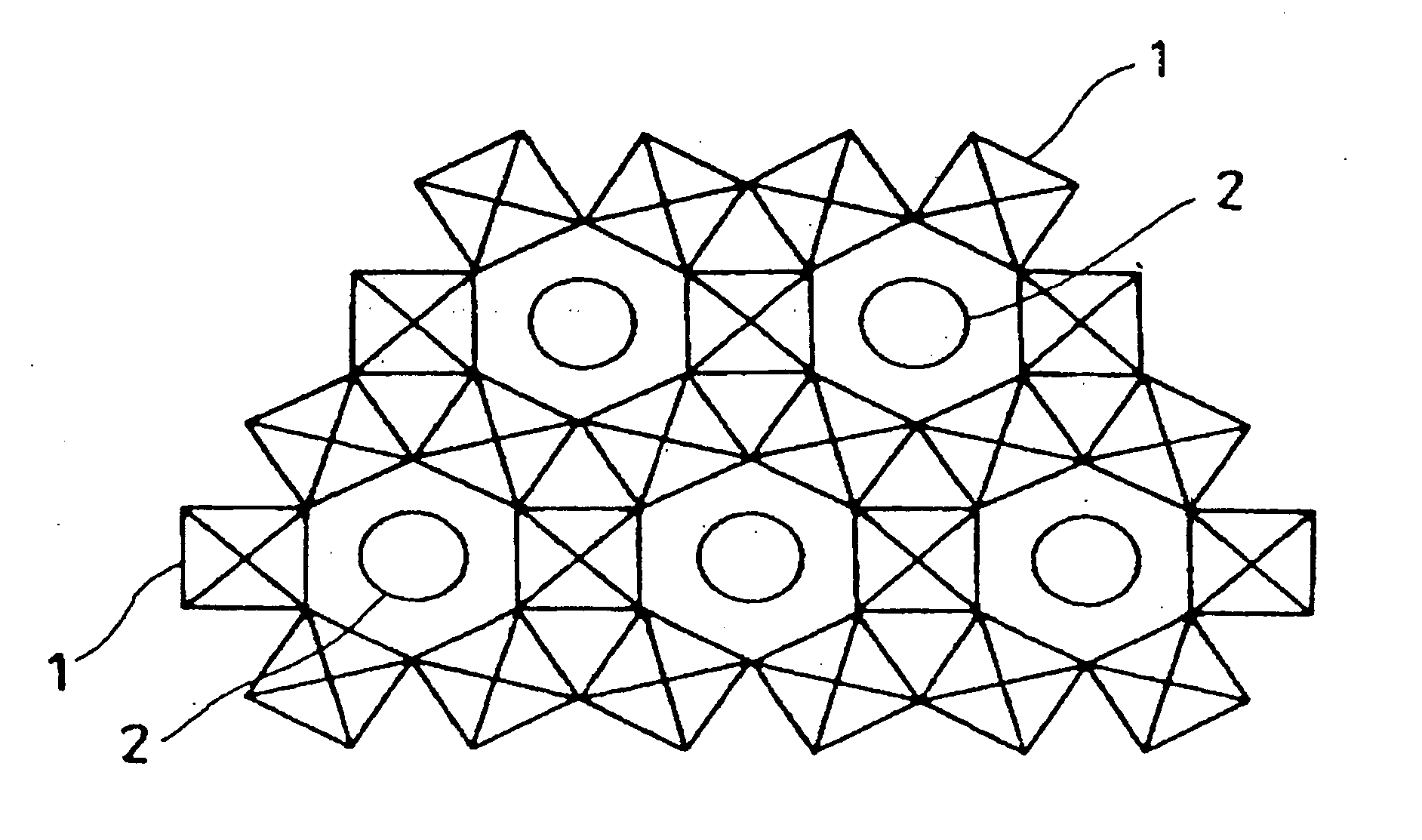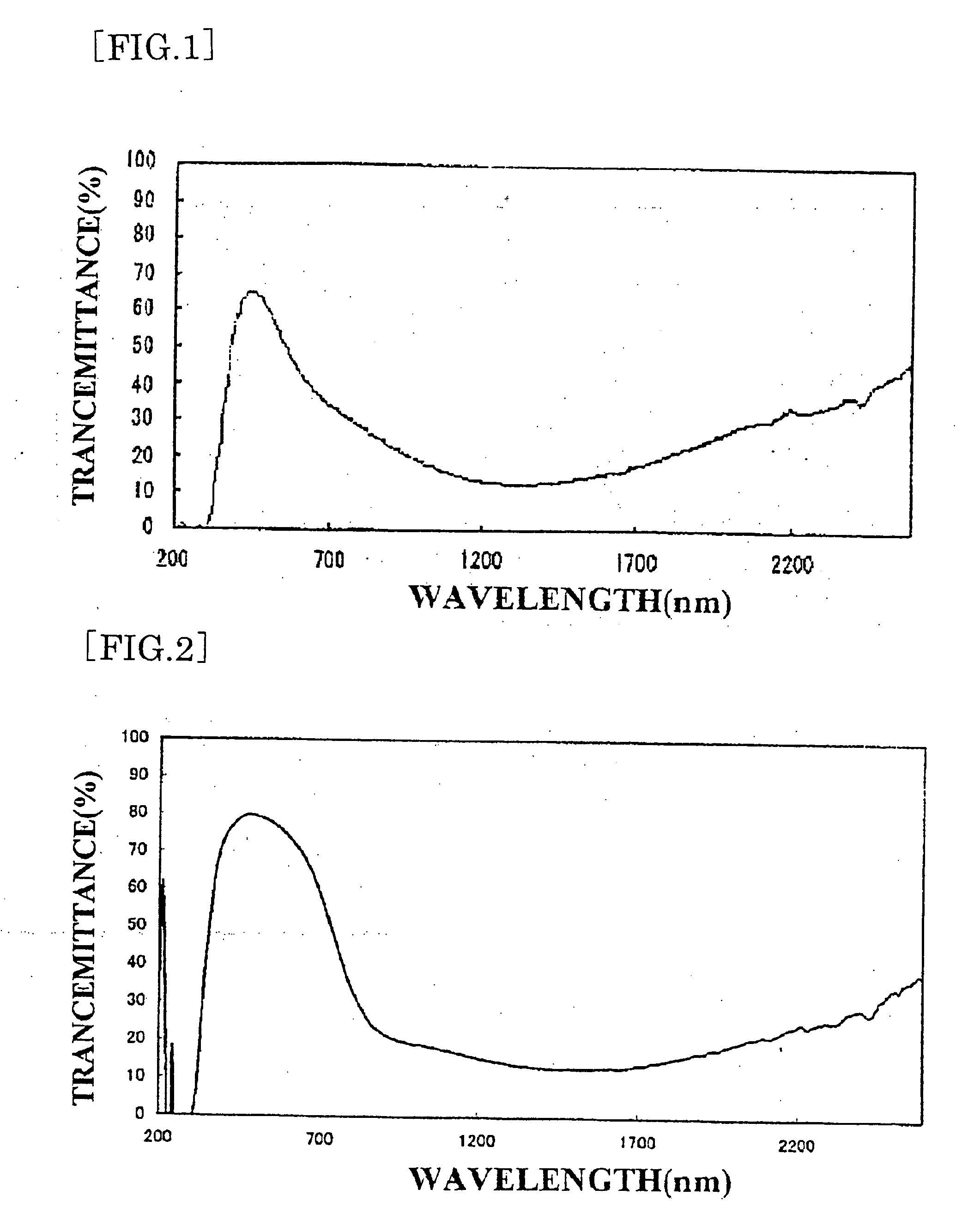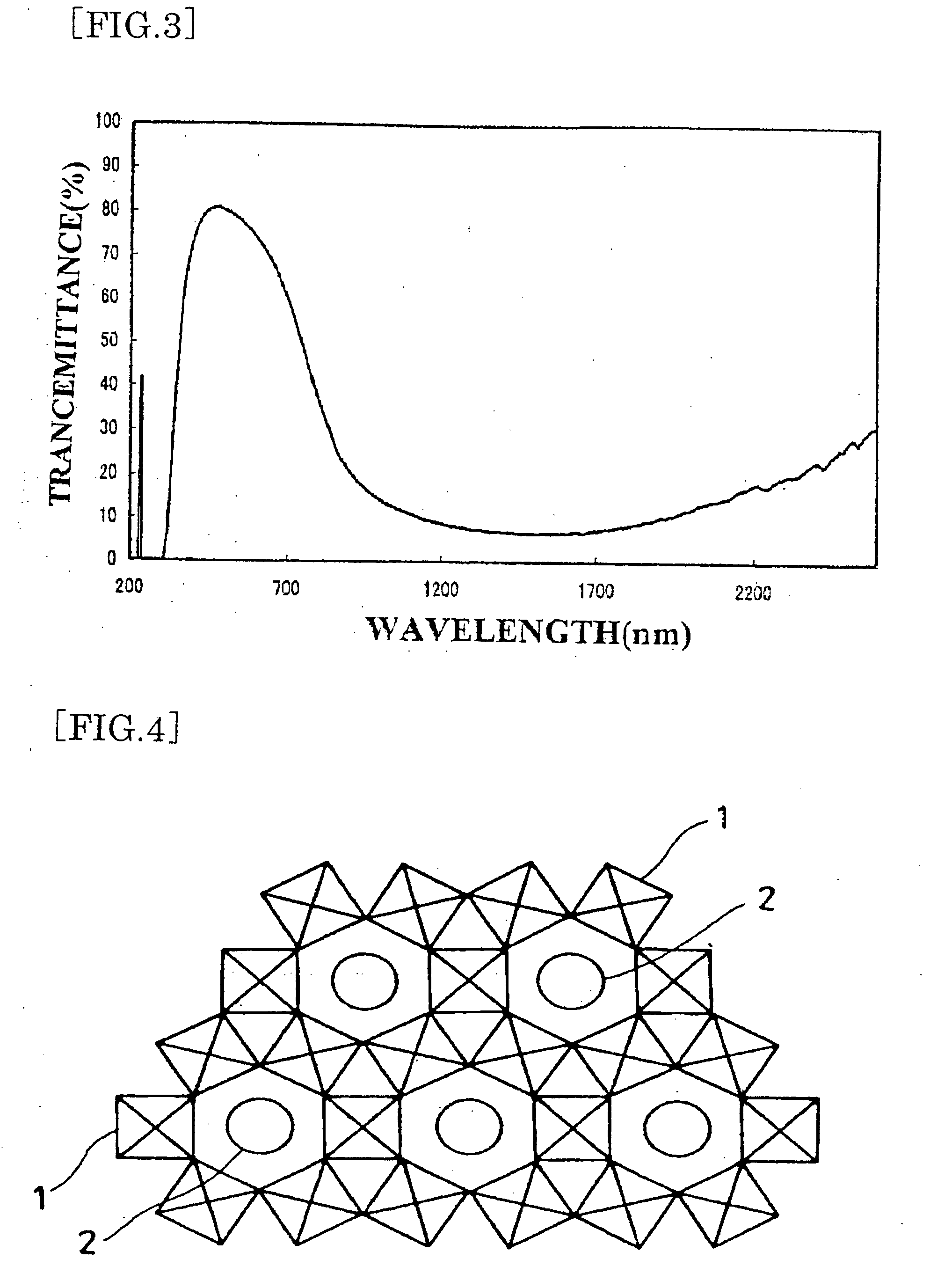Infrared shielding material microparticle dispersion infrared shield, process for producing infrared shield material microparticle and infrared shielding material microparticle
a technology of infrared shielding and microparticles, which is applied in the direction of manufacturing tools, radiation-absorbing paints, wire tools, etc., can solve the problems of high temperature exposure of the substrate used for heat ray cut-off materials, limited application, and increased cost, and achieve excellent characteristics and efficient shielding
- Summary
- Abstract
- Description
- Claims
- Application Information
AI Technical Summary
Benefits of technology
Problems solved by technology
Method used
Image
Examples
example 1
[0116] Tungsten hexachloride and copper dichloride were each weighed so that the molar ratio of W to Cu was 1:0.2. Each compound was dissolved in small portions in ethanol to obtain a mixture solution. The mixture solution was dried at 130° C. to obtain a starting material in a powder form. This starting material was heated at 550° C. in a reductive atmosphere (argon / hydrogen=95 / 5 by volume) for 1 hour, then cooled to room temperature, and heated at 800° C. for one hour in an argon atmosphere, thus producing powder of Cu0.2WO2.72. An X-ray diffraction crystallography performed on the resultant Cu0.2WO2.72 revealed the presence of crystalline phase of W18O49. The specific surface area of Cu0.2WO2.72 was 30 m2 / g.
[0117] 20 pts. wt. Cu0.2WO2.72 powder thus formed, 75 pts. wt. toluene, and 5 pts. wt. polyacrylate-based dispersant were mixed, and subjected to dispersion processing, to obtain a dispersion solution (solution A) in which the average dispersed particle diameter was 80 nm. 10...
example 2
[0121] Tungsten hexachloride was dissolved in small portions in ethanol to obtain a solution. The solution was dried at 130° C., to obtain the starting material in a powder state. This starting material was heated at 550° C. in a reductive atmosphere (argon / hydrogen=95 / 5 by volume) for 1 hour, and cooled to room temperature once, then heated for one hour at 800° C. in an argon atmosphere. Powder of W18O49(WO2.72) was thus produced.
[0122] An X-ray diffraction crystallography performed on the resultant WO2.72 revealed the presence of crystalline phase of W18O49. The specific surface area of WO2.72 was 30 m2 / g.
[0123] 20 pts. wt. WO2.72 powder thus formed, 75 pts. wt. toluene, and 5 pts. wt. polyacrylate-based dispersant were mixed, and subjected to dispersion processing, to obtain a dispersion solution (solution B) in which the average dispersed particle diameter was 80 nm. 10 pats. wt. solution B thus formed and 100 pats. wt. UV-curable hardcoat resin (solid component=100%) were mix...
example 3
[0125] Tungsten hexachloride and copper dichloride were each weighed so that the molar ratio of W to Cu was 1:0.2. Each compound was dissolved in small portions in ethanol to obtain a mixture solution. The mixture solution was dried at 350° C. in the atmosphere to obtain the starting material in a powder state. This starting material was heated at 980° C. in an argon atmosphere for 15 hours to produce the powder of Cu0.2WO2.72. The specific surface area of Cu0.2WO2.72 powder was 31 m2 / g.
[0126] 20 pts. wt. Cu0.2WO2.72 powder thus obtained, 75 pts. wt. toluene, and 5 pts. wt. polyacrylate-based dispersant were mixed, and subjected to dispersion processing, to obtain a dispersion solution (solution C) in which the average dispersed particle diameter was 80 nm. 10 pats. wt. solution C thus obtained and 100 pts. wt. UV-curable hardcoat resin (solid component=100%) were mixed to obtain the fine particle dispersion solution of the infrared-shielding material. Using a bar coater, this infr...
PUM
| Property | Measurement | Unit |
|---|---|---|
| Temperature | aaaaa | aaaaa |
| Temperature | aaaaa | aaaaa |
| Temperature | aaaaa | aaaaa |
Abstract
Description
Claims
Application Information
 Login to View More
Login to View More - R&D
- Intellectual Property
- Life Sciences
- Materials
- Tech Scout
- Unparalleled Data Quality
- Higher Quality Content
- 60% Fewer Hallucinations
Browse by: Latest US Patents, China's latest patents, Technical Efficacy Thesaurus, Application Domain, Technology Topic, Popular Technical Reports.
© 2025 PatSnap. All rights reserved.Legal|Privacy policy|Modern Slavery Act Transparency Statement|Sitemap|About US| Contact US: help@patsnap.com



